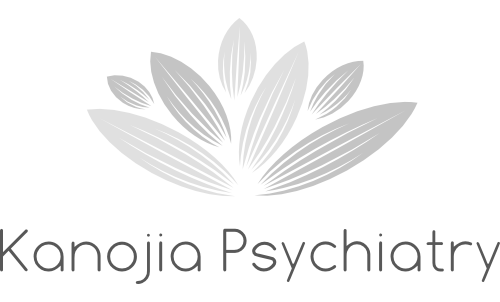Depression, An Integrated Psychiatric Approach
What is Depression?
Depression affects 1 in 3 people over the course of their lifetime. Depression is a wide-range illness with many manifestations. Ultimately, it is distilled into two types of depression – one which worries about the future and one which dwells on the past. The field of psychiatry tends to diagnose depression on the following criteria:
- Depressed or low mood most of the day, nearly every day for weeks to months
- Markedly diminished interest or pleasure in activities
- Significant changes to weight (either gain or loss)
- Insomnia or sleeping too much on a regular basis
- Feeling restless or feeling slowed down, like your limbs are heavy or made of lead
- Low energy or fatigue
- Feelings of worthlessness or guilt
- Challenges with concentration
- Indecisiveness or trouble coming to a decision
- Recurrent thoughts of death, or thinking about going to sleep and never waking up, or in some cases thoughts of suicide
If you are struggling with depression and medication is not enough, the solution for you may be a more customized mind-body strategy that deals more specifically with your TYPE of depression: anxious or neurovegetative.
Differentiating Treatment for Anxious vs. Neurovegetative Depression
While modern, evidence-based psychiatry understands and recognizes the difference between the two forms of depression, they are still largely treated very similarly in both medication and therapy.
There are alternate schools of medicine that treat the two different types of depression very differently, and at that, more holistically. A holistic depression regimen will focus on meditative techniques, diet, exercise and sleep as well as medication. Kanojia Psychiatry draws from these holistic bodies of medical knowledge to develop integrated, personalized approaches to depression.
Anxious Depression
- Characterized by insomnia, fidgeting, worry, and weight loss
- Worried about what is going to happen.
- Excess of mental activity (anxiety, worry) that is unproductive and painful
- Think things are going to go wrong and struggle with seeing positive future outcomes
- Trouble sleeping, sometimes with aggravated insomnia
People feel like their mind is going in circles, yet they never arrive at a decision. Treatment for this person has the central theme of trying to create grounding and balance. Diet is designed to provide stability, and meditative practices are aimed at calming the mind. Very specific practices focused on restful sleep are vital.
Neurovegetative Depression
- Characterized by slowness, heaviness, low energy, excessive sleepiness, and weight gain
- Tend to be stuck on past events
- Filled with regret, dwell on the past, have feelings of guilt
- Suffer more from the “can’t get out of bed” version of Depression
The treatment goal is to provide vitality, thus boosting the body’s energy. Meditative techniques are focused at boosting one’s Qi, prana, or vital life energy. Dietary changes aim to optimize ease of digestion. Food that is light and invigorating are advised, while heavy foods that induce sleepiness and slow down the body are avoided.
Integrated Approach to Depression
When helping people with depression, Dr. Kanojia uses a combination of the latest evidence-based psychiatric treatment, along with Ayurvedic lifestyle adjustments, with a tailored meditation practice. In the early phase of treatment, medications such as antidepressants may be used to gain control of symptoms – after all, depression itself makes it very difficult to engage in lifestyle change.
Dr. Kanojia also uses meditation with almost all of his patients – aimed at enhancing their vital force or calming their mind. As patients start to improve, the focus shifts more towards cultivating mental health through more meditative practice, dietary changes, and mind-body practices such as yoga or tai chi.
From Depression to Wellness
In the final phase of treatment, the goal is to foster resilience against further attacks of depression while solidifying a healthy lifestyle, with the possibility of stopping medication. The focus moves from treating illness and solidifying health to focusing on fulfillment and meaning.
For patients who are interested, meditative practices can transition from symptomatic improvement (such as gaining restful sleep) to more spiritual practices focused on personal growth and development. Dr. Kanojia works with patients to transition into a “wellness regimen” with a holistic psychiatric approach to leading a happy, fulfilling, goal-oriented life.
In either case of depression, creating mental resilience is the key. If you would like to explore integrative psychiatry with Dr. Kanojia, please use the form below to request an appointment.
Request an Appointment
Please note that Kanojia Psychiatry is an “out-of-network” provider.
Please fill out the form below to request an appointment.
**Please do not disclose any personal health or financial information. This is not a HIPAA-protected communication.

